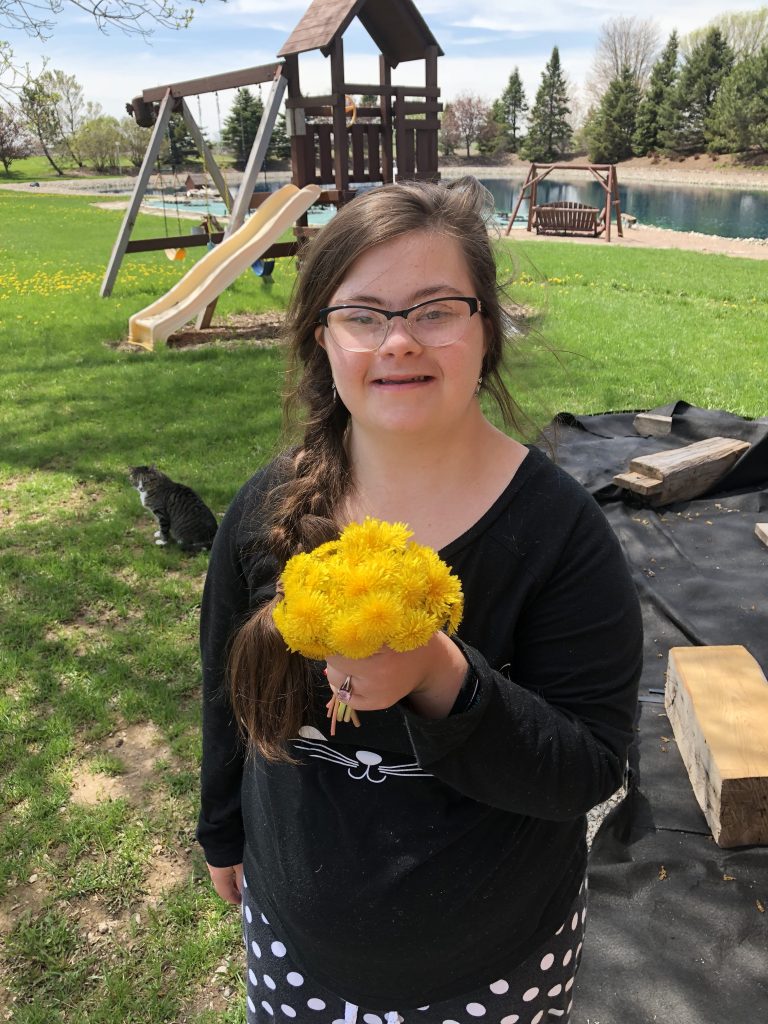The family of a deceased Wisconsin patient is suing the hospital and staff for issuing a Do Not Resuscitate (DNR) order.
Grace Schara, a 19-year-old with Down Syndrome, was admitted to St. Elizabeth’s (Ascension) Hospital in Appleton, Wisconsin on October 7, 2021, upon the suggestion of an urgent care center where she was taken for a COVID-19 diagnosis. The hospital admitted her for monitoring.
The DNR was issued without the family’s consent, and Grace received a lethal combination of anesthesia drugs for no apparent medical reason, states the wrongful death complaint filed in a Wisconsin Superior Court on April 11, 2023.
“We would have never considered this would be a dangerous place to put her in,” said Scott Schara, Grace’s father, in a video posted on the website of Our Amazing Grace’s Light Shine’s On, Inc., a nonprofit founded by the family.
Family Refused DNR
Grace’s blood oxygen levels were at safe levels on the second day when the hospital asked for blanket consent to put her on a ventilator at any time, which the family refused.
After the first few days, the hospital would not permit Scott Schara to be at Grace’s bedside and an armed guard removed him, according to Schara. Grace’s mother was home recovering from COVID-19.
In the video, Grace’s sister Jessica Schara, who served as her bedside advocate under the Americans with Disabilities Act, says the hospital staff did not keep her informed about Grace’s progress.
“The communication was so poor,” said Schara. “No doctor or nurse came to me to tell me what they were doing. I had to overhear what they were saying. They were making decisions on their own.”
Given Dangerous Drugs
Grace was not put on a ventilator, but medical records show she received Precedex, a short-term intravenous sedation drug that is indicated for no more than 24 hours, for four days.
Hours before her death, Grace was given Lorazepam, an anti-anxiety drug, and then Morphine, an opioid that depresses respiration. These drugs should not be used in conjunction with similar medications because of possible coma or death, according to their labels.
“To use them (as) they did in a person with a diagnosis of acute respiratory distress is beyond believable as to intention,” a doctor who reviewed the records told the family, according to a news release from the family’s nonprofit.
After Grace received the drugs, her vitals dropped to dangerous levels. “There were 30 to 40 nurses in that hallway. No one lifted a finger,” said Jessica, on the video.
By phone, Grace’s parents also urged intervention. Scott Schara says that is when they learned the doctor had put a DNR order in place. Grace’s parents watched their daughter die on FaceTime, seven days after she was admitted.
Lethal Incentives
Seeking hospital treatment led to Grace’s death, Scott Schara told the Heartland Daily Podcast on June 1.
“If we never admitted her, Grace would be alive today,” said Schara. “I know that with certainty because I went into a different hospital three days later. I was substantially worse, and that hospital turned me around in 24 hours.”
According to the news release, COVID-19 treatment incentives played a role in Grace’s death. If the hospital had put Grace on a ventilator, diagnosed her with COVID-19, and listed COVID-19 as her cause of death, it would have received $65,000 in bonuses from Medicare, Grace’s insurance provider.
“The average time on a ventilator is 22 days so when you add up all the money the hospital would have received, it’s about a $300,000 payday,” states the press release.
Obamacare Angle
The Schara family says physician-assisted death for the disabled is enabled by Section 1553 of the Affordable Care Act, which prohibits discrimination complaints against a doctor or hospital when it involves “assisted suicide, euthanasia, or mercy killing.”
“Grace was taken out as euthanasia,” said Schara, in the podcast. “This is legal.”
The family filed a complaint with the Wisconsin Department of Safety and Professional Services, but the agency said nothing in state law prohibited the doctor’s actions.
The family also discovered a training document for health care professionals from the Palliative Care Network of Wisconsin titled “Palliative Care for Patients with Down Syndrome.”
Down Syndrome Palliative Care -3rd-Ed
“After they set the stage that people with Down Syndrome are nothing but problems, they assume the family doesn’t want them,” said Schara. “Grace was nothing but a blessing to us.”
‘Incredible Medical Hubris’
The purpose of the lawsuit is to shed light on evil, Schara stated in the podcast.
“There is almost no money in these lawsuits,” said Schara. “We have said if we get any money, we’re going to disclaim it. We are paying for our own lawsuit. We believe God is behind us and we’re going to win.”
Issuing a DNR in these circumstances is bad medicine, says Heidi Klessig, M.D., a retired anesthesiologist, pain management specialist, and founder of Respect for Human Life, an advocacy group.
“At best, it sounds like incredible medical hubris, and at worst, it sounds like straight-up medical murder,” said Klessig.
There is no ethical justification for a DNR order without consent, says Jane Orient, M.D., executive director of the Association for American Physicians and Surgeons.
“This patient was a precious and unique human being,” said Orient. “The hospital appears to have assigned negative value to her life. It appears from the information given that her father was correct; she probably would have had a better chance at home.”
AnneMarie Schieber (amschieber@heartland.org) is the managing editor of Health Care News.
Photo courtesy Scott Schara.
For related articles:
DNR Orders Associated with Increased Deaths, Study Finds, Feb. 3, 2021
Pandemic Policy Critic Fights Multiple Attacks on His Medical License – Interview, April 25, 2023
